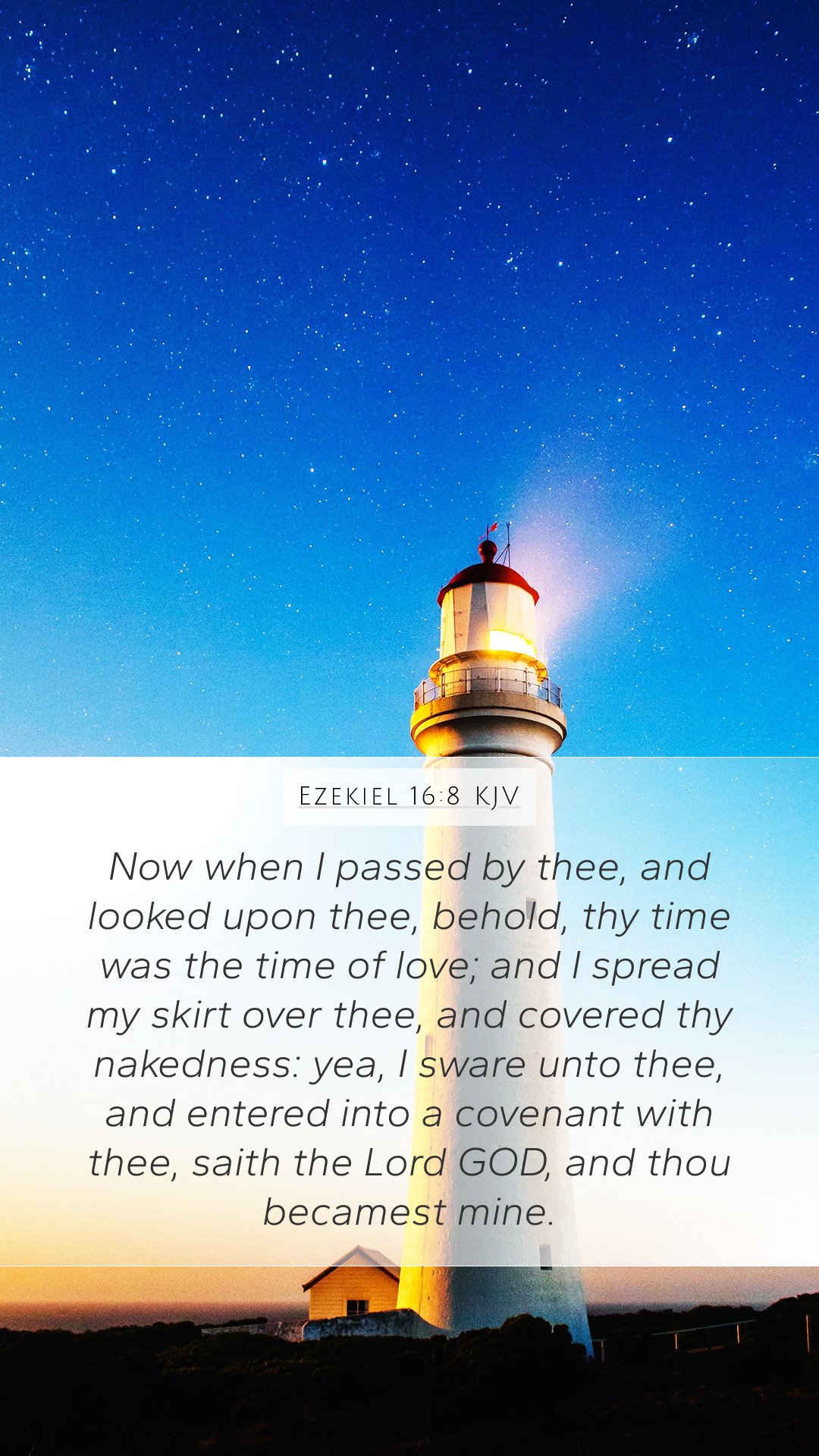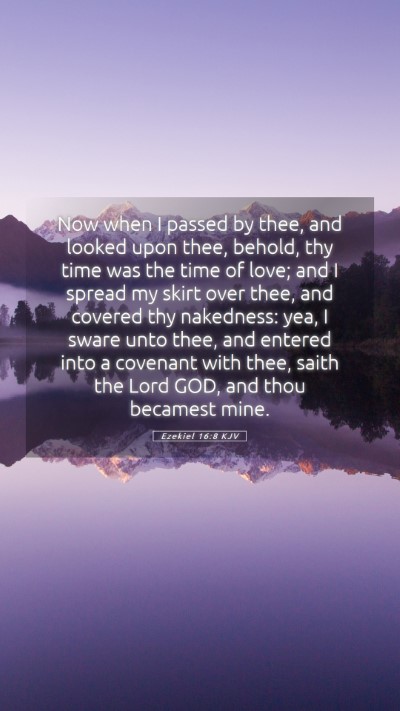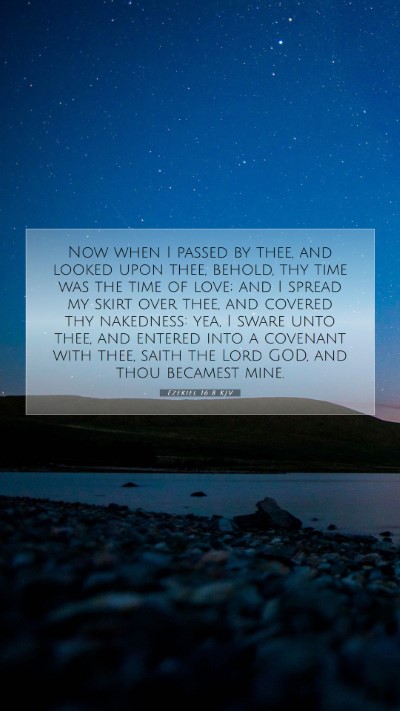Ezekiel 16:8 - Bible Verse Meaning and Commentary
Ezekiel 16:8 states: "When I passed by you again and looked upon you, behold, you were at the age for love; and I spread the corner of my garment over you and covered your nakedness; yes, I swore an oath to you and entered into a covenant with you, says the Lord God, and you became mine." This verse carries profound significance within the context of God’s relationship with Israel, portrayed powerfully in prophetic imagery.
Understanding Scripture: A Combined Commentary
In exploring the Bible verse meanings of Ezekiel 16:8, we consider insights from respected public domain commentaries.
-
Matthew Henry's Commentary
Henry emphasizes that this passage illustrates God’s gracious and merciful covenant with Israel. He reflects on how God noticed Israel in its vulnerable state and chose to love it unconditionally. The act of spreading His garment symbolizes protection and acceptance, highlighting the intimate bond forged through covenant.
-
Albert Barnes' Commentary
Barnes draws attention to the deep love shown in this oath and covenant. He specifies that the imagery of covering one's nakedness represents both protection and purity. By entering into this covenant, God expresses his ownership of Israel, transforming them from a state of neglect to being cherished and valuable.
-
Adam Clarke's Commentary
Clarke elaborates on the metaphorical significance of garments in biblical tradition. He points out that spreading a garment indicates a desire for partnership, implying that God desires to take care of and embrace His people. Clarke also recognizes the historical context, situating the covenant within the broader narrative of Israel's rebellion and eventual redemption.
Significance and Application of the Verse
This verse encapsulates the heart of Biblical exegesis regarding God's unwavering love and commitment to His people. The contrast between Israel's prior helplessness and God’s establishing a covenant with them becomes a central theme. It teaches the transformative power of divine grace that applies even in times of utter vulnerability.
Key Themes and Insights:
- Divine Recognition: God sees us in our weakest moments and chooses to embrace us.
- Covenantal Love: The covenant illustrates the depth of relationship God desires with humanity.
- Transformation: The passage reflects how divine love can lead to profound change and restoration.
Reflections for Bible Study Groups
In your Bible study groups, this verse can spark discussions about:
- The nature of God’s love and grace.
- The importance of recognizing our own state and God’s intervening grace.
- How to apply the concept of covenant to our daily lives and relationships.
Cross References
Ezekiel 16:8 can be enriched by considering several cross-references:
- Isaiah 54:5: For your Maker is your husband, the Lord of hosts is his name.
- Hosea 2:19-20: And I will betroth you to me forever; I will betroth you to me in righteousness and in justice.
- Jeremiah 31:3: The Lord appeared to us in the past, saying: “I have loved you with an everlasting love.”
Conclusion
In summary, understanding this scripture invites us to appreciate the depth of God's love as portrayed in Ezekiel 16:8. This passage serves not only as a testament of God’s enduring relationship with Israel but also stands as a lesson on the nature of divine love and protection in our own lives. Through both historical context and spiritual reflection, believers can find profound insight that informs our understanding of Scripture and its contemporary applications.


